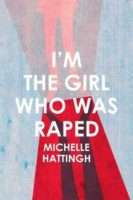Janah and I stand outside her wedding venue, waiting for the right time to enter. I look down into her green eyes, a lighter shade than mine. I think back to how she had to leave Port Elizabeth for her first year at Stellenbosch barely a week after Roneldi died. I remember how we used to be so close that it never occurred to us to knock before entering each other’s rooms, how we would just sit together, doing nothing.
I remember how she once said to me when she was sixteen: “If things get too bad at home, I’ll take you and we’ll go away.” She was going to take me to America so we could become famous. I remember how she used to drink wine at night in order to fall asleep because she was so alone. She used to talk about how she would have lots of lovers but never get married.
A lot of my friends doubt whether they are with “the one”. I asked Janah how she knew George was the one when she got engaged.
“I just do,” she said, the most fuss-free answer I’ve ever heard.
The sun is streaking through the clouds but the day is cold. It had been raining the whole week. We are on a rustic wine farm in Stellenbosch, green vineyards surroundings us on all sides and craggy mountains in the distance. The building is a simple, red brick building on the outside; inside, it is a mixture of industrial and vintage ruin with wooden beams, cement floors, and holes in the walls.
Janah is breathtaking. Her dress, a work of art which she helped design, has an intricate lace gold corset, a chiffon overlay, puffed-up sleeves and a tight-fitting soft skirt that flows over her body. She has red lips and nails.
My dad is standing with us, taking photos. He will walk Janah down the aisle. I still haven’t met my sister, Emma, who is over a year old by now, but I know she is inside with my stepmother Ioanna.
The harmonisation of two little girls’ voices ripple through the chapel at the top of the building. Their rendition of Ave Maria has most people in tears as my incandescent sister floats down the aisle, my dad’s arm seemingly the only thing still holding her to this earth. The low lights and the mason jars with candles are burning with life.
Through laughter and tears, my sister and George promise their lives to each other. My body sings with happiness for my sister, who so bitterly spoke about marriage, who didn’t believe in true love, who was hurt by men over and over again in her life, and I am in awe at the wonder of two real, broken people finding love that they want to make last for a lifetime.
Holding hands as we witness their love, they swing their palms back and forth like two children playing at getting married.
Everyone is crying.
When they are being congratulated, George comes over and hugs me. “Sussie!” he greets me. And he hugs me tighter.
“Boetie!” I reply.
Mackenzie is my date and the wedding brings together just the right amount of strange people. At one stage, I am talking to Gavin, who was Roneldi’s boyfriend when she passed away.
I meet Emma, my sister, a little one-year-old blonde girl. In her mother’s arms, it is strange to think that she is my blood. She doesn’t look anything like Janah or Roneldi or I did. Her features are softer, more open.
Or maybe that’s just because she’s a baby, you idiot, I think.
My dad swears that she looks just like me while my mom questions that we are sisters at all. I try to play with her but I find it hard to find this baby interesting when I have no idea who she is. I don’t have the love for her that I have for the rest of my family. I desperately hope that changes. As Emma squeezes my thumb, I notice Ioanna, her mom and my dad’s new wife, looking at me.
“You know, I can fix your scar for you,” Ioanna says.
I have a scar on my cheek from when a dog bit me when I was five years old. The scar is so much part of my face that I don’t even see it anymore.
“Really?” I ask, horrified.
“Oh, yeah. I can just inject a filler. I should have brought them over from Canada,” she scrutinizes me. “The one on your forehead as well.”
That scar is from when I fell on a chair. “It’s okay,” I say.
“No, it’s so quick and easy. I do a lot of cosmetic work now. Look, my lips are twice the size of what they were.” She pouts in demonstration.
“I hadn’t noticed,” I lie.
I slowly back away. The rest of the night I imagine her staring predatorily at my scars every time I pass her.
The food is decadent and the speeches are genuine and from the heart. An overwhelming feeling of love permeates the occasion. The candle light and chandelier on the one long white dining table invoke the feeling of an era past.
Gladys, our domestic worker, and her friend Julia sing a song for Roneldi at the reception. They are dressed in traditional Xhosa attire, Gladys in orange and Julia in red. They have white dots painted on their faces. They close their eyes. Gladys’ voice rings across the venue, echoes and reaches up to heaven where I see my sister looking down and smiling at us. Julia joins her and they harmonise in haunting words our family does not understand: just as we do not understand death or what happened to our sister or where she is. The only thing that is clear is the emotion, universal and transcending, speaking of love and loss, life and death and its inevitability.
[subpage]


